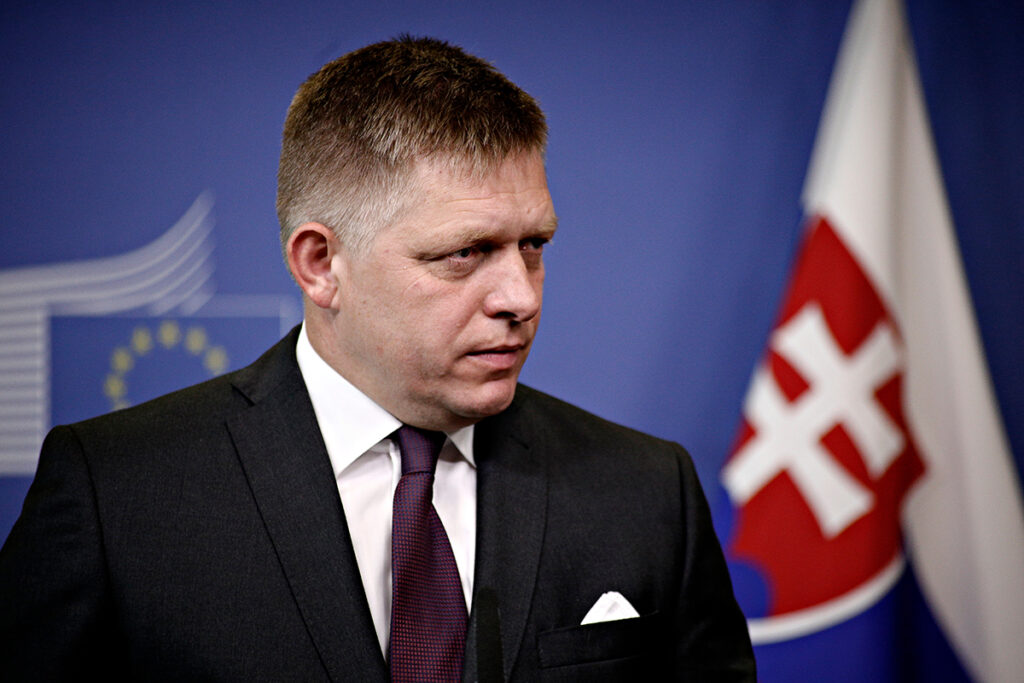As Slovakia gears up for its upcoming presidential elections on April 6, the political arena is abuzz with controversy and tension, primarily centering around the actions and rhetoric of Prime Minister Robert Fico and his government’s perceived slide towards authoritarianism. Fico’s recent maneuvers have sparked domestic outrage and raised eyebrows internationally, painting a picture of a nation grappling with its democratic identity while navigating complex geopolitical currents.
The latest flashpoint occurred during Fico’s visit to the Ministry of Justice in Bratislava, where he took thinly veiled jabs at judges on the Supreme Court who had ruled against his political allies in criminal cases. The move elicited swift condemnation from Justice Juraj Kliment and opposition figures, who decried what they saw as an assault on judicial independence.
Critics have pointed to Fico’s leadership style, drawing parallels to the tactics employed by Hungarian Prime Minister Viktor Orbán. Since his return to office for a fourth term last October, Fico has been accused of dismantling anti-corruption mechanisms, tightening control over public media, and echoing Moscow’s narrative, causing consternation within the European Union.
Political analyst Michal Vašečka has gone so far as to characterize Fico’s regime as a potential “mafia state,” where power is consolidated at the expense of democratic norms and institutional integrity.
Adding to the turmoil, Fico’s chief adviser, Erik Kaliňák, recently threatened to scrutinize the financial dealings of Slovak media outlets and individual journalists, amid concerns over Russian influence operations in Europe. This move has raised alarm bells among press freedom advocates and intensified fears of government overreach.
Slovakia’s geopolitical alignment has also come under scrutiny, particularly its growing rapport with Moscow. Fico’s government has opposed arming Ukraine and has advocated for a negotiated settlement to the conflict with Russia, a stance that has strained relations with neighboring countries such as the Czech Republic. Czech Prime Minister Petr Fiala has openly criticized Slovakia’s foreign policy decisions, citing concerns for European security.
Fiala’s decision to suspend intergovernmental meetings between the two countries underscores broader apprehensions within the European Union about Slovakia’s trajectory, with fears that its drift towards Moscow could undermine regional stability.
As Slovakia stands at a critical juncture, the outcome of the upcoming elections will shape the country’s path for years to come. The choices made by voters will not only determine Slovakia’s domestic governance but will also have far-reaching implications for its relationship with the European Union and its position within the broader geopolitical landscape.
As the world watches, Slovakia finds itself at a crossroads, grappling with fundamental questions of democracy, sovereignty, and its role in shaping the future of Europe. The decisions made in the coming days will reverberate far beyond its borders, shaping the contours of European politics for generations to come.


